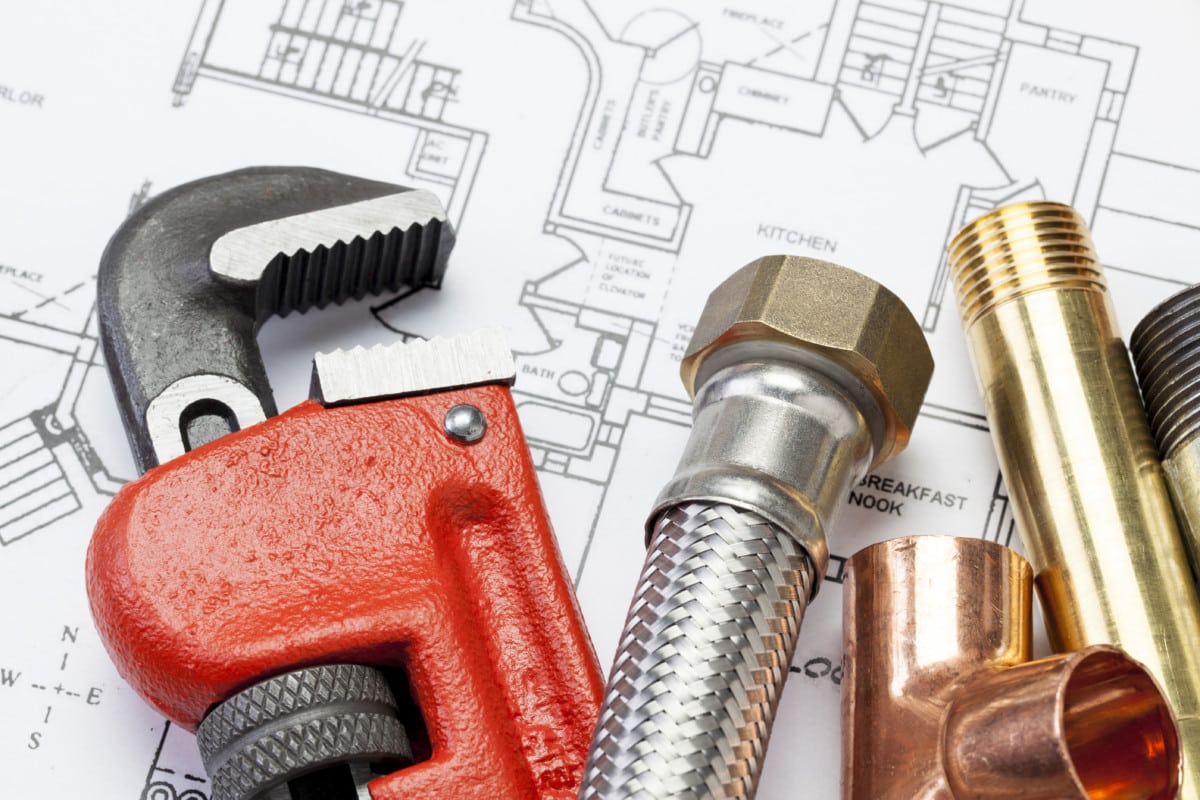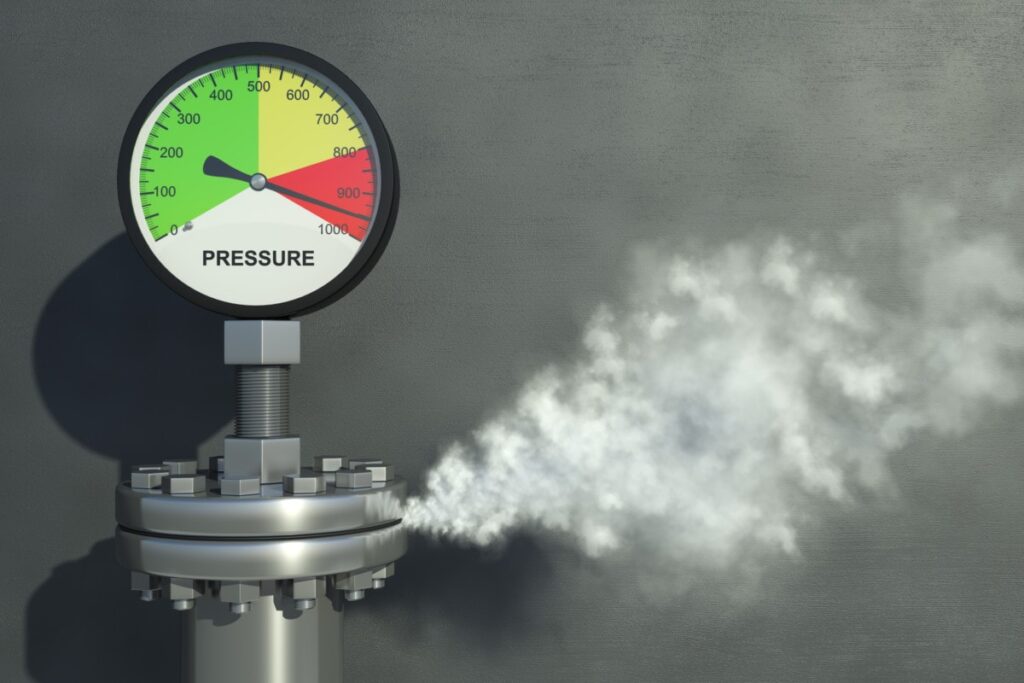Natural gas is commonly used in households across the United States, particularly in stoves and water heaters. It is an efficient energy source that can help reduce your carbon footprint and increase the value of your home. Homes with gas hookups tend to sell for more than those without.
While natural gas is generally safe when used and maintained properly, leaks can occur, posing serious health and safety risks. Other gases like propane, radon, and refrigerants can also cause problems. Burning natural gas produces carbon monoxide (CO), which can be lethal in enclosed spaces.
Household gas leaks are becoming increasingly common. A 2018 study found that U.S. fire departments respond to an average of 125,000 gas leak calls annually – a 25% increase from 2007.
Given the potential dangers, it is crucial for everyone to be able to detect gas leaks, regardless of where they live. Whether you reside in Boston, MA, or are a new tenant in San Antonio, TX, continue reading to learn how to identify a gas leak in your home.
How to detect a gas leak
Gas leaks can be dangerous due to the risk of fire, exposure, or explosion. While carbon monoxide (CO) is not caused by a gas leak, it can accumulate silently if gas appliances are not vented or maintained properly. It is essential to recognize the signs of a gas leak to prevent potential harm to yourself, your family, and your property. Here is a quick checklist to help you.
- Install a gas leak detector
- Smell for rotten eggs
- Listen for hissing sounds
- Look for bubbles outside
- Notice dead or dying plants
- Track gas usage
- Monitor physical symptoms
1. Install a gas leak detector
If you don’t already have one, place a gas leak detector near sleeping areas and in utility rooms throughout your home. These devices are designed to detect combustible gases like methane and propane and alert you before concentrations reach dangerous levels.
You can also invest in a portable gas leak detector for added convenience. While a homemade solution involving soap and water can be used as a temporary measure, it should not replace a proper gas leak detector.
It is important to note that gas leak detectors do not detect carbon monoxide – a separate carbon monoxide detector is necessary for that purpose. Installing both types of detectors enhances safety by alerting you to multiple hazards: Gas leak detectors warn of combustible gas buildup, while CO detectors signal dangerous levels of carbon monoxide.
2. Smell for rotten eggs
To help detect gas leaks, a harmless chemical called mercaptan is added to natural gas, giving it a distinctive rotten eggs or sulfur-like odor. If you notice this smell indoors, evacuate immediately and contact your gas company or 911.
It is important to remember that carbon monoxide is odorless, tasteless, and colorless.
3. Listen for hissing sounds
Large gas leaks in pipes and appliances may produce a hissing or whistling sound. Regularly check your appliances for any unusual noises to detect potential leaks.
4. Look for bubbles outside your home
Gas typically enters homes through underground pipes connected to the local gas main under the road. If there is a leak underground, you may observe bubbling in puddles or soil, indicating escaping gas.
5. Notice dead or dying plants
Gas leaks can affect plant roots by displacing oxygen in the soil, leading to wilting, yellowing leaves, stunted growth, or plant death near buried lines or gas meters. Keep a close eye on outdoor vegetation in these areas.
6. Track gas usage
Minor gas leaks can go unnoticed for months, so monitoring your gas usage is crucial. Compare your monthly utility bills to previous months or neighborhood averages to identify any unusual spikes that may indicate a leak.
7. Monitor physical symptoms
Exposure to leaking gas or its byproducts, particularly carbon monoxide, can be hazardous. While physical symptoms should never replace detectors or regular maintenance, being aware of signs of potential exposure is important.
Symptoms of exposure include headaches, dizziness, fatigue, weakness, nausea, and irregular breathing. Severe exposure to carbon monoxide can result in memory loss, comas, and even death. If you experience symptoms of gas exposure, seek medical help immediately.

Who to call for a gas leak
If you suspect a gas leak, turn off your electricity and contact a professional plumber, emergency utility maintenance service, or 911. Most municipal gas companies have a 24-hour emergency line. Avoid using a landline if you suspect a gas leak, as it can cause a spark, which is extremely dangerous.
Do not attempt to locate the exact location of a gas leak – leave that task to trained professionals. Exposure to carbon monoxide and methane can lead to explosions, physical symptoms, and property damage.
What causes a gas leak?
Gas leaks can result in fires, explosions, and health issues. It is essential to understand how gas pipes and appliances develop leaks, in order to prevent them in your home. Here are the five most common causes.
1. Fitting and connection issues
Poorly installed fittings and connections, which transport natural gas from the local gas main to your home, are common causes of gas leaks. Even properly installed fittings can develop leaks over time.
2. Corrosion or damage to gas pipes
Corrosion of gas pipes over time can lead to leaks, particularly in older homes and infrastructure. Corrosion was the primary cause of gas leaks in the U.S. from 2009-2018.
3. Poor appliance maintenance and installation
Gas leaks can occur if appliances are not installed correctly or maintained properly. Common issues include damaged gas hoses, burners, and poorly fitted seals.
4. Appliance malfunctions
Even new appliances can malfunction with regular use, potentially causing gas leaks if the malfunction affects the natural gas flow or combustion.
5. Natural disasters or external damage
Physical damage from weather events or construction work can cause gas leaks. For example, earthquakes can rupture gas mains, while excavation work may accidentally damage gas pipes in your home. If your home has recently experienced a natural disaster, checking for gas leaks should be a top priority.
Refrigerant leaks
Be vigilant with appliances that use refrigerants, as they often contain gases like freon and isobutane, both of which can be harmful. If your refrigerator, A/C unit, or another cooling appliance suddenly stops working, turn them off immediately and check for leaks. Many gas leak detectors also detect refrigerants, but ensure you have one that does. If you detect a refrigerant leak, contact a professional promptly.
Furthermore, never attempt to repair your appliances yourself, as many states prohibit non-professionals from handling refrigerants due to their hazardous nature. Upon detecting a refrigerant leak, seek professional assistance without delay.

How to prevent gas leaks
Prevention is key to avoiding gas leaks in your home. While it may require additional effort, it is essential for maintaining a safe living environment. Here are some ways to prevent gas leaks before they occur.
- Ensure your gas pipes are installed by a professional: Improper installation is a common cause of gas leaks. When installing new appliances or upgrading existing systems, be sure to hire a qualified master plumber.
- Maintain fittings and appliances: Gas pipes and appliances deteriorate over time. While you can inspect appliances yourself, it is advisable to schedule annual gas maintenance with a master plumber.
- Upgrade appliances: Older appliances are more prone to malfunctions and leaks. They are also less energy-efficient and more costly to maintain. Upgrading your stove, water heater, or dryer can help reduce the risk of gas leaks.
- Switch to electricity: The most effective way to prevent gas leaks is to phase out gas from your home. Consider switching to all-electric appliances and installing solar panels to offset the increased electricity consumption.
Final thoughts on gas leak detection
Detecting gas leaks is crucial for maintaining a safe and healthy home. While natural gas is an efficient energy source, it comes with risks such as leaks, environmental concerns, and indoor air quality issues.
To detect and prevent gas leaks, install a gas leak detector and a carbon monoxide detector for added safety. Ensure that your pipes, fittings, and appliances are installed correctly, and schedule regular check-ups with a professional plumber. In the event of a leak, turn off your electricity, evacuate your home, and contact your local gas company or emergency services. If you want to eliminate the risk of gas leaks altogether, consider transitioning to electric appliances and phasing out gas from your home.
If you notice any signs of a gas leak in your home or suspect exposure, contact your local utility provider or call 911 immediately.

